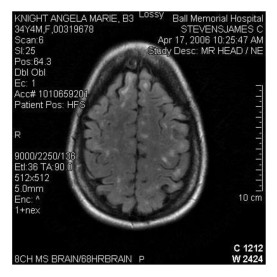Sorry I’ve been quiet for so many months! I have a lot of catching up to do, as many changes have come over that time. But this is a week I had to step in. As I prepared to write an article to submit to our area newspaper, I thought of different angles I could take when making others aware of MS… my favorite past article compared it to an Ivanhoe’s shake, and another had looked at a house with electric issues, but my friend Anne had a clearer thought. MS doesn’t make a lot of sense to her, so how about a basic Q and A session? She was right, so I submitted this Marion Chronicle-Tribune last weekend. And they published it last Tuesday – wow! So here it is for you to read also.
March 8-14 marks “MS Awareness Week,” but why should we be aware? According to the National MS Society, nearly one million people in the US live with multiple sclerosis. This illness doesn’t always look or act the same, and you likely have friends or neighbors with MS, unbeknownst to you. I speak from experience. In 1999, we were preparing to move to a different house when we had a telling conversation with our retired neighbors. We had lived next door since 1997, but we didn’t realize the gentleman had faced MS for many years.
When I received my teaching license in 1994, I did not know that a 1997 diagnosis of MS would offer a whole new curriculum to teach from, at least for one week each year. I’ll answer here some common questions I receive:
- What causes Multiple Sclerosis? Many (multiple) scars (sclerosis) are left when a confused immune system attacks myelin, the white protective coating of the nerves (and the “white matter” in the brain). When the myelin is damaged, scars are created. Why the immune system misbehaves this way is another question, and the answer is unclear, likely including genetics, environment, and at least a dozen other factors. Roughly two thirds of MS patients are female the majority are Caucasian, but examples like talk show host Montel Williams show that every case is unique.
- How is MS diagnosed? If a physician suspects MS, an MRI of

MRI of Angie’s brain the brain can show scars in damaged areas. Other tests involve vision, manual dexterity, coordination, and memory.
- How old are patients when they are diagnosed? Though it is usually first diagnosed in a patient’s twenties or thirties, pediatric MS is less common, starting around the teenage years or earlier. If a diagnosis first comes in a patient’s forties or fifties, they sometimes realize that earlier symptoms had been ignored or misdiagnosed.
- What are common symptoms of MS? Symptoms vary from person to person, but they often include fatigue, lack of coordination, visual problems, and weakness. Some patients only ever have one or two relapses, and it doesn’t come back. The most common disease course is “relapsing-remitting,” where symptoms flare up then improve, though not completely returning to the original level. “Progressive” MS does not vary in this way.
- Does temperature affect a person with MS? Yes! Before MRI machines could assist with diagnosis, a patient believed to have MS would enter a hot tub. If he or she became numb and couldn’t move arms or legs, the diagnosis was certain, and cooling down again restored the ability to move. Hot weather is generally not desirable for those with MS, and air conditioning may not be a luxury, but a necessity.
- Is there a cure for MS? No, but there are currently seventeen different medications that help slow or decrease its effects. (When I was diagnosed in 1997, there were three.) Until quite recently, only relapsing-remitting MS could be treated with medication, now “progressive MS” patients (which previously had no treatments) have at least two options. I know more about this than I may wish, as I have taken seven of those medications over the past twenty-one years.
Today, new discoveries are being made, and a cure for MS grows closer each day. Until then, the second week in March will remain a time for me to become a teacher again, helping others become aware of MS. If you wish to learn more, visit the National MS Society or MS Association of America.
About the author: Angela Knight lives in Upland with her husband and daughters. Diagnosed with MS in 1997, she was part of an area support group for several years.

